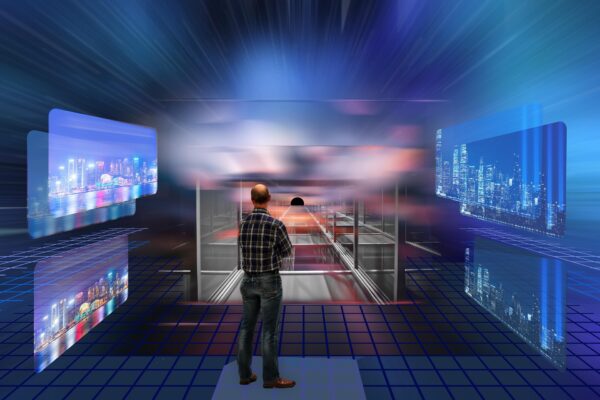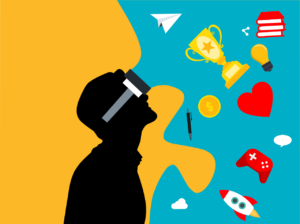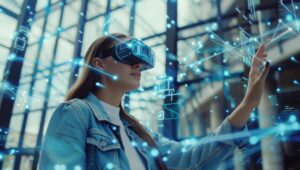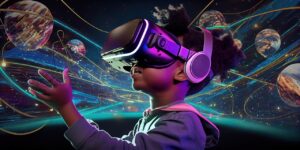
The concept of the metaverse envisions a digital realm where individuals interact through avatars in an immersive virtual space. Within this vast digital universe, music plays a significant role, giving rise to what is now known as the Musical Metaverse—a dedicated segment of the metaverse that fosters musical activities such as live performances, virtual concerts, and collaborative composition. This domain is rapidly evolving, opening new frontiers in digital communication and human-computer interaction.
The Evolution of the Musical Metaverse
As technology advances, the integration of Extended Reality (XR) into the metaverse has become more prevalent. Musical XR systems enable users to engage with music in novel ways, creating interactive and immersive experiences. Despite the growing interest in this field, research on networking systems that effectively integrate with Musical XR remains limited. Understanding and developing this integration is essential for the seamless functioning of musical applications in virtual spaces.
Key Areas of Interest in the Musical Metaverse
1. Musical XR Systems for Networked Interactions
Musical XR systems leverage virtual and augmented reality to facilitate networked musical interactions. These systems enable artists and audiences to share real-time experiences, regardless of geographical boundaries. Enhancing these systems with high-speed, low-latency communication is critical for ensuring seamless performance.
2. Multisensory Systems for Enhanced Musical Experience
A truly immersive musical experience in the metaverse requires more than just audio-visual engagement. Multisensory systems incorporate haptic feedback, spatial audio, and even olfactory stimulation to enrich the user experience. These enhancements make virtual performances more realistic and engaging.
3. WebXR-Based Musical Systems
WebXR technology enables users to access metaverse environments directly from web browsers without requiring dedicated applications. WebXR-based musical platforms offer greater accessibility, allowing more people to participate in musical activities from various devices.
4. Networking for the Musical Metaverse
Robust networking infrastructure is crucial for real-time music collaboration in the metaverse. The development of low-latency and ultra-reliable communication protocols will enhance the quality of musical interactions, enabling smooth synchronization of live performances and remote collaboration.
5. Digital Twins for Musical Applications
Digital twins replicate real-world musical environments in the virtual space. This technology allows musicians to simulate concert venues, studios, and rehearsal spaces, providing a more lifelike experience in the metaverse.
6. Multiuser Interactions in Musical XR
Collaboration is a fundamental aspect of music creation. Multiuser interactions in Musical XR systems enable artists to compose, rehearse, and perform together in shared virtual spaces, fostering a new era of musical creativity.
7. Hardware Systems for the Musical Metaverse
Advanced hardware is essential for an optimal musical experience in the metaverse. This includes VR headsets, motion capture devices, spatial audio systems, and haptic feedback technology, all of which contribute to more immersive musical interactions.
8. Performance, Composition, and Pedagogy in the Musical Metaverse
The metaverse is transforming how music is performed, composed, and taught. Virtual concerts, AI-assisted composition tools, and interactive learning environments redefine traditional approaches to music education and performance.
9. Virtual and Augmented Reality Musical Instruments
Musicians in the metaverse can use virtual and augmented reality instruments that simulate real-world counterparts or create entirely new musical interfaces. These innovative instruments offer unprecedented creative possibilities.
10. Design Frameworks for the Musical Metaverse
Developing user-friendly and scalable design frameworks is crucial for structuring the Musical Metaverse. Standardized frameworks help ensure consistency, ease of development, and interoperability among different platforms.
11. Experimental Prototypes and Testbeds
Testing new musical applications in controlled environments allows researchers to refine functionalities before large-scale deployment. These prototypes help in identifying challenges and optimizing performance.
12. Ultra-Reliable Low-Latency Communications (URLLC)
Real-time musical interactions demand minimal latency and high reliability. Ultra-reliable low-latency communications (URLLC) ensure that live performances and collaborations remain smooth and synchronized, even in virtual settings.
13. 5G/6G Architectures and Edge Computing
Next-generation wireless networks, including 5G and upcoming 6G technologies, provide enhanced connectivity with reduced latency. Leveraging Multi-access Edge Computing (MEC) further enhances data processing capabilities, benefiting real-time musical applications in the metaverse. Learn more about the impact of 5G and 6G in Africa by reading The Future of 5G and 6G in Africa: Opportunities, Benefits, and Challenges.
14. Blockchain and NFTs in the Musical Metaverse
Blockchain technology and Non-Fungible Tokens (NFTs) introduce new opportunities for music ownership, monetization, and copyright protection. Artists can tokenize music assets, sell digital collectibles, and establish decentralized revenue streams.
15. Standardization in the Musical Metaverse
For widespread adoption, industry-wide standardization efforts are necessary. Establishing protocols for interoperability ensures seamless integration across different Musical Metaverse platforms and applications.
16. Security and Privacy Considerations
As with any digital environment, security and privacy are critical concerns. Protecting user data, preventing unauthorized access, and ensuring safe transactions are fundamental to fostering trust within the Musical Metaverse.
17. Ethical, Accessibility, and Sustainability Aspects
Ensuring inclusivity, ethical practices, and environmental sustainability in the Musical Metaverse is essential. Developing accessible technologies, reducing digital waste, and promoting fair use policies contribute to a responsible virtual ecosystem.
18. Brain-Computer Interfaces (BCI) for Music
Brain-Computer Interfaces (BCIs) represent a groundbreaking innovation for musical interaction. By translating neural signals into musical input, BCIs enable new forms of expression and interaction for musicians and audiences alike.
How Africa is Embracing the Musical Metaverse
1. Virtual Concerts and Digital Performances
African artists are beginning to explore virtual concerts, allowing them to reach a global audience. Platforms like Ubuntuland (https://africarare.io/), a metaverse developed by South African company Africarare, provide a digital space where African music can thrive. Major African artists like DJ Black Coffee and Davido have experimented with virtual performances, leveraging technology to engage fans worldwide.
2. NFTs and Blockchain for Music Monetization
With limited traditional revenue streams, African artists are increasingly using NFTs and blockchain technology to sell their music and digital assets. For instance, Sarkodie, a Ghanaian rapper, was one of the first African musicians to launch an NFT project. Platforms like Momint (https://www.momint.so/) are helping African artists explore NFT-based monetization.
3. XR Technology for Music Production and Learning
Companies like Imisi 3D (https://www.imisi3d.com/) in Nigeria and Black Rhino VR (https://blackrhinovr.com/) in Kenya are pioneering VR and AR applications, enhancing music composition, production, and live performances.
4. 5G and Internet Expansion
Countries like South Africa, Kenya, and Nigeria are rolling out 5G networks, enabling real-time collaboration, virtual concerts, and seamless XR experiences.
Conclusion
The Musical Metaverse is an exciting frontier that merges music, technology, and virtual reality to redefine how we create, experience, and share music. Africa is making significant strides, though challenges like high hardware costs and digital literacy persist. As research and investment grow, Africa will play an increasingly influential role in shaping the future of music in the metaverse.


